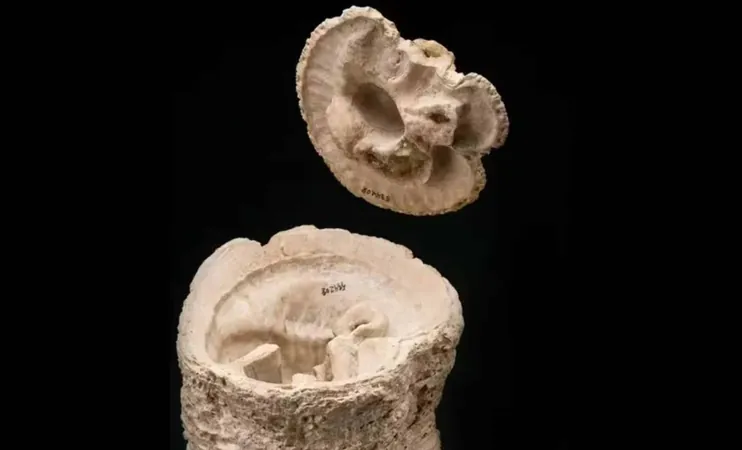
The Asteroid That Wiped Out Dinosaurs Sparked an Unlikely Ocean Revival
2025-06-22
Author: Kai
A Catastrophic Event with Unforeseen Consequences
About 66 million years ago, a colossal asteroid collided with Earth, annihilating roughly 70% of life and marking the end of the Cretaceous period. While this disaster is infamous for eradicating the dinosaurs, its impact on ocean life reveals a fascinating story of resilience.
The Ocean's Unexpected Survivors
Marine ecosystems faced catastrophic losses, witnessing the extinction of creatures like mosasaurs and ammonites. Nonetheless, marine bivalves—clams, oysters, and mussels—exhibited a stunning survival instinct. Paleobiologists reveal that although approximately 75% of bivalve species vanished, nearly every ecological niche they occupied persevered in some form.
Revolutionary Research Findings
A groundbreaking study published in Science Advances unearthed remarkable findings after scrutinizing thousands of bivalve fossils. Despite the severe downturn in species diversity, the bulk of ecological roles remained intact. The research team expressed astonishment, stating, "Statistically, that shouldn’t have happened."
Unique Adaptations for Survival
So what allowed these bivalves to endure the cataclysm? Their incredible adaptability played a pivotal role. Unlike many marine species that depend on sunlight and phytoplankton, certain bivalves developed specialized survival strategies. Some formed symbiotic relationships with bacteria and algae, benefitting from the nutrients produced in a mutually beneficial partnership. Others, like mussels, anchored themselves to rocks with robust silken threads, bolstering their resilience against environmental upheavals.
Sunlight: A Fading Lifeline
In contrast, species reliant on sunlight for energy faced dire consequences. The dust and debris from the asteroid's impact shrouded the sun, decimating the food chain and devastating many marine organisms. The ability of certain bivalves to thrive on chemosynthesis demonstrated an alternative route for life's rejuvenation, independent of light.
The Lasting Impact on Marine Diversity
While many bivalves triumphed, the extinction event reshaped marine life in complex ways. Some species capitalized on the ecological void left by extinct organisms, while others could not adapt. Notably, the once-prevalent rudists—significant reef-building bivalves—were completely eradicated. The ecological roles they once held were partially supplanted by giant clams and other species, but these replacements lacked the rich diversity rudists had once provided.
A New Era for the Oceans
The aftermath of this mass extinction reveals that the oceans are capable of rapid and extraordinary recovery, albeit in a transformed state. The story of bivalves stands testament to nature's resilience, showcasing that life can adapt and thrive even in the wake of utter devastation.


 Brasil (PT)
Brasil (PT)
 Canada (EN)
Canada (EN)
 Chile (ES)
Chile (ES)
 Česko (CS)
Česko (CS)
 대한민국 (KO)
대한민국 (KO)
 España (ES)
España (ES)
 France (FR)
France (FR)
 Hong Kong (EN)
Hong Kong (EN)
 Italia (IT)
Italia (IT)
 日本 (JA)
日本 (JA)
 Magyarország (HU)
Magyarország (HU)
 Norge (NO)
Norge (NO)
 Polska (PL)
Polska (PL)
 Schweiz (DE)
Schweiz (DE)
 Singapore (EN)
Singapore (EN)
 Sverige (SV)
Sverige (SV)
 Suomi (FI)
Suomi (FI)
 Türkiye (TR)
Türkiye (TR)
 الإمارات العربية المتحدة (AR)
الإمارات العربية المتحدة (AR)